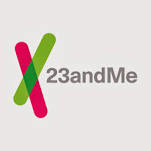 When personal genomics and biotech firm 23andMe was founded in Mountain View, Calif., in 2006, the hype over the genetic tests it offered directly to consumers was immediate and irresistible to many. The company promised that for a nominal fee, it could scan your saliva sample and tell you — based on your genetics — everything from who your ancestors were to what diseases you may be at risk of developing many years down the road. 23andMe raised more than $100 million in capital from such big-name investors as Google and Genentech. Today, the company’s website boasts having close to 500,000 “genotyped consumers.”
When personal genomics and biotech firm 23andMe was founded in Mountain View, Calif., in 2006, the hype over the genetic tests it offered directly to consumers was immediate and irresistible to many. The company promised that for a nominal fee, it could scan your saliva sample and tell you — based on your genetics — everything from who your ancestors were to what diseases you may be at risk of developing many years down the road. 23andMe raised more than $100 million in capital from such big-name investors as Google and Genentech. Today, the company’s website boasts having close to 500,000 “genotyped consumers.”
So it was a surprise to some observers when, on November 22, the U.S. Food & Drug Administration (FDA) sent a strongly worded letter to 23andMe CEO Anne Wojcicki demanding that the company stop marketing its test, called Personal Genome Service (PGS), until it secures authorization from the agency. The FDA contends that PGS is a medical device being pitched for the diagnosis and prevention of disease, and therefore it must obtain approval under federal law.
